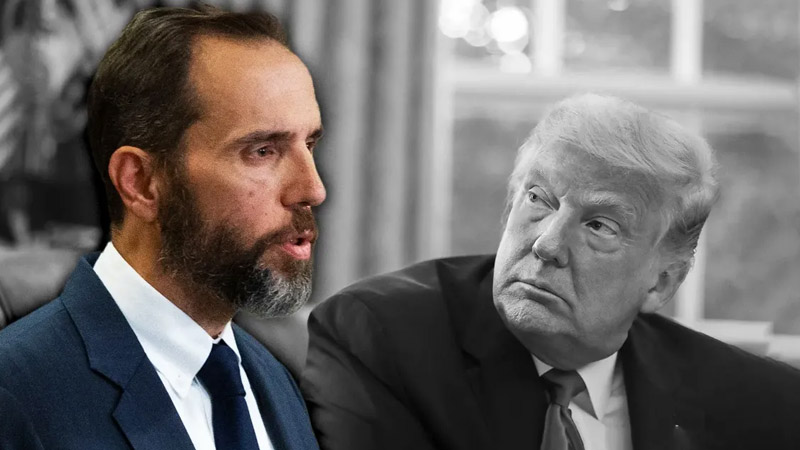Trump Introduces New Legal Challenge Against Jack Smith in Mar-a-Lago Documents Case

(Getty Images)
Former President Donald Trump has introduced a new point of contention in the Mar-a-Lago classified documents case, which he is leveraging to further complicate the ongoing trial. This recent development involves an accusation from Trump’s co-defendant and close associate, Walt Nauta. Nauta has criticized the prosecutors for allegedly failing to provide an “accurate” index of the boxes of documents that are being used as evidence in the case.
Despite special counsel Jack Smith refuting most of these claims, he has conceded to certain errors, as reported by Law & Crime. These concessions include the acknowledgment that the arrangement of items within some evidence boxes did not correspond with their associated scans. This discrepancy has led to a vehement reaction from Trump’s legal team, who have expressed their indignation over what they perceive as mishandling of the evidence.
“We are troubled by the concession in your May 3 submission that the prosecution team failed to preserve critical evidence relating to the location of documents within boxes obtained from Mar-a-Lago,” a new letter from Trump’s team reportedly reads. “The documents’ location constituted exculpatory information relating to, inter alia, the complete absence of culpable criminal intent by President Trump.”
Law & Crime‘s Colin Kalmbacher notes the prosecution also characterized much of Trump’s claims as “bogus and essentially made up.” But Smith’s admissions about inconsistencies were quickly seized upon by Trump, he writes. “Defense attorneys seized on that language and, in a motion seeking leave to file a sur-reply — a reply to a motion that can only be filed with court approval since all briefs on an issue have been filed — framed the disclosure as ‘discovery violations, misrepresentations to the Court and potential spoliation resulting from the mishandling of boxes,'” the report continued. “Included with the motion, was a copy of the proposed defense response to the government’s latest admission in the case — which alleges Smith ‘attempted to bury’ the concession ‘in a footnote.'”
In response to these developments, Trump’s defense team is now urging U.S. District Judge Aileen Cannon to take these issues into account in their upcoming legal motions. They are seeking to suppress the disputed evidence and to dismiss the case on the grounds of prosecutorial misconduct. Additionally, they are considering requesting sanctions against Smith for his handling of the evidence.
Furthermore, Trump’s legal team is prepared to file a motion to compel further disclosures from the prosecution, contingent on whether Smith opts to release these disclosures voluntarily. This action is part of a broader strategy by Trump’s defense, which includes an attempt to dismiss the entire case based on claims of “selective prosecution.” However, some legal experts have pointed out significant flaws in Trump’s motion for dismissal, describing them as “fatal” to his argument.
The scenario underscores a pattern of legal wrangling and challenges posed by Trump’s defense team, which aims to undermine the prosecution’s case and possibly delay the proceedings. This tactic reflects Trump’s longstanding approach of contesting legal processes and asserting claims of unfair treatment.
The developments in the Mar-a-Lago case are particularly significant, given the sensitive nature of the documents involved and the high stakes of the trial. The defense’s aggressive tactics highlight the complexities of dealing with classified information and the procedural challenges in high-profile legal cases. As the trial progresses, these issues are likely to continue influencing the legal strategies of both sides, shaping the course of the proceedings in this closely watched case.


